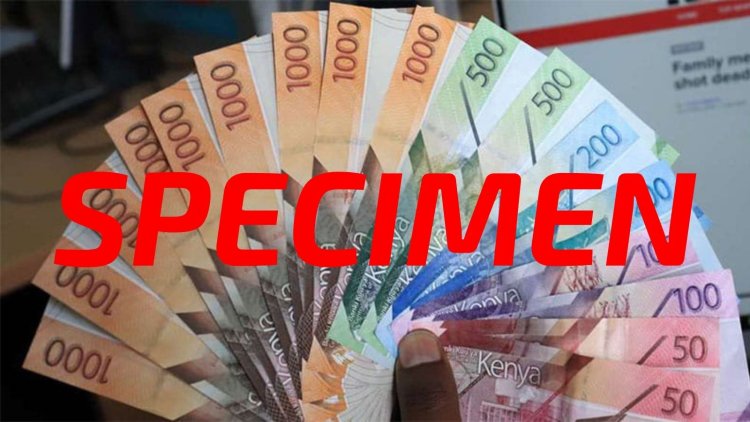How Money Market Funds Work: A Comprehensive Guide
MMFs serve as an alternative to traditional savings accounts such as those in banks, offering competitive interest rates while maintaining a high level of security.

For a while now, Kenyans have been debating money market funds (MMFs), which are a popular investment vehicle for individuals and institutions seeking liquidity, safety, and modest returns.
An MMF is a unit trust fund managed by a professional fund manager, providing investors with a safe place to keep their cash while earning a return. MMFs serve as an alternative to traditional savings accounts such as those in banks, offering competitive interest rates while maintaining a high level of security.
This article provides an in-depth look at how money market funds work, their benefits, risks, and considerations for investors.
What Are Money Market Funds?
Money market funds are a type of mutual fund that invests in short-term, high-quality, low-risk securities. These may include Treasury bills, commercial paper, certificates of deposit (CDs), and repurchase agreements.

An image of money being saved in a piggy bank. /FILE
The primary objective of MMFs is to provide investors with stability and easy access to their funds while generating income through interest.
Types of Money Market Funds
Money market funds can be categorized based on the types of assets they invest in. The main types include:
-
Government Money Market Funds – Invest primarily in government-issued securities, such as Treasury bills and government agency bonds.
-
Prime Money Market Funds – Hold a mixture of government and corporate securities, including commercial paper from large corporations.
-
Municipal Money Market Funds – Invest in short-term municipal bonds that may provide tax-exempt income.
How Money Market Funds Work
Money market funds function by pooling money from multiple investors and using it to purchase short-term securities. These securities typically have maturities of 397 days or less, ensuring liquidity and reducing interest rate risk.
Investors buy shares in the money market fund, and the value of each share is typically maintained at $1 (Ksh129.50 in current exchange rates), with income paid out as dividends.
The fund managers actively manage the portfolio to ensure stability and compliance with regulatory requirements set by the Capital Markets Authority (CMA) in Kenya under the Capital Markets Act and the Capital Markets (Collective Investment Schemes) Regulations.
Benefits of Money Market Funds
Money market funds offer several advantages, including:
-
Liquidity – Investors can access their funds quickly, often within a business day.
-
Low Risk – MMFs invest in high-quality, short-term securities, minimizing default risk.
-
Stable Returns – While returns are modest, they are typically higher than those of traditional savings accounts.
-
Diversification – These funds invest in a broad range of securities, reducing exposure to any single issuer.
-
Convenience – Many investors use MMFs as a cash management tool, often linking them to brokerage or checking accounts.
Risks and Considerations
Despite their advantages, money market funds are not risk-free. Key risks include:
-
Interest Rate Risk – Rising interest rates can impact the yield and performance of the fund.
-
Credit Risk – While rare, issuers of securities in the fund may default on payments.
-
Regulatory Risks – Changes in government regulations can affect fund operations and returns.
-
Inflation Risk – MMF returns may not keep pace with inflation, eroding purchasing power over time.
How to Invest in Money Market Funds
Investing in a money market fund is relatively straightforward:
-
Choose a Fund – Select a fund that aligns with your investment goals (e.g., government, prime, or municipal MMF).
-
Open an Account – This can be done through a brokerage, mutual fund company, or financial institution.
-
Deposit Funds – Investments can be made via bank transfer, check, or direct deposit.
-
Monitor Performance – Regularly review fund performance and interest rate trends to ensure it meets your needs.
Before investing in Money Market Funds (MMFs), it's important to define your financial objectives—whether you're saving for a short-term goal or seeking a temporary place to hold cash while awaiting better investment opportunities.
MMFs have different minimum investment requirements, with some allowing entry with as little as Ksh 500 or Ksh 2,000. Investors should thus ensure they are comfortable with these requirements before committing to a fund.
Key factors to consider when choosing an MMF include:
-
Personal financial goals
-
The fund’s historical performance
-
Management fees
Per a recent report seen by Viral Tea, the highest-yielding Money Market Fund in Kenya has an interest rate of 16.25% and the lowest offering 5.8%
Conclusion
Money market funds are a valuable tool for investors seeking a balance of liquidity, safety, and modest returns.
While they are not entirely risk-free, they remain one of the most secure investment options available. By understanding their structure, benefits, and risks, investors can make informed decisions on incorporating MMFs into their portfolios.







